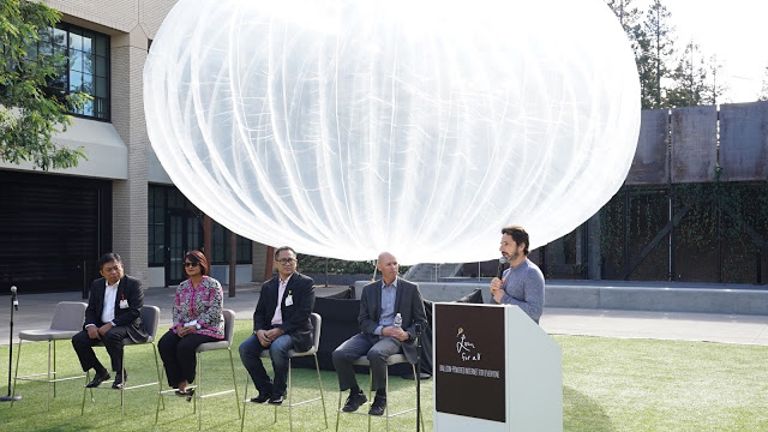-
Tips for becoming a good boxer - November 6, 2020
-
7 expert tips for making your hens night a memorable one - November 6, 2020
-
5 reasons to host your Christmas party on a cruise boat - November 6, 2020
-
What to do when you’re charged with a crime - November 6, 2020
-
Should you get one or multiple dogs? Here’s all you need to know - November 3, 2020
-
A Guide: How to Build Your Very Own Magic Mirror - February 14, 2019
-
Our Top Inspirational Baseball Stars - November 24, 2018
-
Five Tech Tools That Will Help You Turn Your Blog into a Business - November 24, 2018
-
How to Indulge on Vacation without Expanding Your Waist - November 9, 2018
-
5 Strategies for Businesses to Appeal to Today’s Increasingly Mobile-Crazed Customers - November 9, 2018
Google Is Launching 20000 Helium Balloons Across Indonesia to Improve Internet
Google parent Alphabet Inc. signed a deal to work with three Indonesian telecommunications firms to test its Internet-beaming balloons across the country, part of an effort to get more of the world online to broaden the audience for Google’s services.
Advertisement
The company has announced it’s secured cooperation with the populous island nation’s three mobile operators – Telkomsel, XL Axiata, and Indosat – to run the tests.
However, most of those phones don’t connect to the Internet either because users can’t afford data plans, or more frequently, live in remote or rocky areas where it’s impractical or too expensive to install the equipment needed to deliver high-speed Internet access.
It’s probably the best testing-ground for Loon so far, because Indonesia is a telco nightmare, with 17,000 islands of which around 920 are permanently inhabited, and with lots of remnant jungle to get in the way of microwave links.
“Indonesia is the flawless fit for Project Loon”, said Mike Cassidy, the project leader for Loon, at a press conference at Google’s headquarters in Mountain View, California yesterday, in front of a Loon balloon and representatives from Indonesian telcos and government officials (President Joko Widodo was supposed to attend as well, before he cut his trip to the USA short to attend to the haze crisis).
That kind of access could help Indonesian fishermen as well as farmers, who work in areas with no Internet infrastucture, said Dian Siswarini, CEO of XL Axiata.
By using balloons, Alphabet can skirt the need to build a network of cell towers. While Indonesia has close to 100% mobile penetration, only 23%, are smartphones, which means that even if the coverage is there, consumers may not have the devices to access the network.
Google X’s incredibly ambitious Project Loon is expanding into another country soon.
The balloon system has been trialed with Telstra in Australia, Telefonica in Latin America and with Vodafone in New Zealand. But they can be steered around the globe by moving them up and down in the stratosphere to exploit the way that winds blow at different speeds and directions.
Project Loon is still testing its technology, so there is still no estimate of when it will start selling the Internet service to households and businesses within range of the balloons.
Not everyone is happy with Loon’s arrival in Indonesia. The country’s largest telecommunication company, Telekomunikasi, rejected Google’s plan, arguing that it would undermine its own investment in fibre-optic infrastructure.
“Loon is focusing on hard-to-reach areas, not those we can reach using traditional methods”.
Advertisement
“I think having very clear missions for each piece where they don’t feel entangled in a complex way has been working really well for us”, Brin said.




























